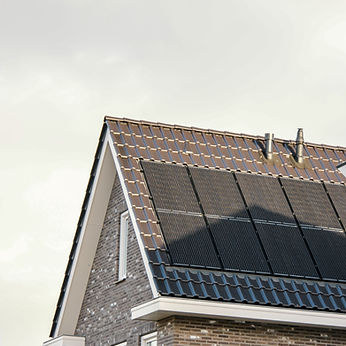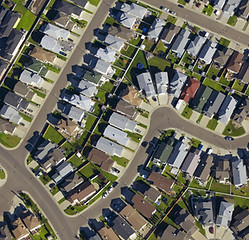Arkansas Solar


Understanding Solar in Arkansas
Solar energy in Arkansas booming! Arkansas is a hotbed for solar power, and with high electricity rates in the state, it's an ideal place to go green.
There's a lot of solar energy in the Ozarks for Arkansas residents to harvest! Solar panels are an inexpensive way to power homes and businesses with sustainable, renewable energy. In fact, many Arkansans have taken advantage of this opportunity by installing them on their rooftops or connecting them at ground level. There is even one large installation that spans over 1 million square feet - enough space to cover more than 100 football fields!
Going solar is a big decision. By knowing the basics of solar energy, as well as your solar options, and what to ask solar professionals, you're all set up to make the right decisions.
How Solar Works
Solar panels convert solar energy into electricity. They work by absorbing the solar rays from the sun and then converting them to an electric current that is sent to your home or business. The solar power can be used instantly, saved for later use, or sold back to the grid depending on how you configure your solar system!
The amount of solar energy solar panels can generate depends on the solar panel size and how much direct sunlight they are able to capture. The more solar electricity you use, the more solar power is used!
In Arkansas, solar panels work in a variety of different conditions and can be used any time, no matter what the weather is like outside! Solar panels in Arkansas will generate power even if it's cloudy out or at night.
Your Home Solar Options
When it comes to solar power, your home is one of the best places for you to start. Solar panels in Arkansas are a good way to generate renewable energy and save money over time!
There are three main types of solar systems: stand-alone photovoltaic (PV) systems using string inverters or microinverters, grid-tied solar systems with battery backup inverters or without battery backup inverters, and off-grid photovoltaic (PV) systems.
To help you make the best choice, it's important to understand all the different solar panel options available.
Solar energy is the newest way to lower your electricity bill. Here are three of the most popular options, explained in more detail below:
-
Purchase a solar system (with cash or a loan) and own both the system and all the power it produces
-
Lease a system, usually for a monthly rate, and own all the power it produces
-
Enter a “power purchase agreement” (PPA) to buy (in price per kWh) the electricity the system produces

Purchase
You're going solar! When you buy a system, you become the owner of the system and enjoy all the benefits from the electricity it produces. The cost of upkeep varies depending on your provider, but most residential solar systems require little to no maintenance, and some providers offer maintenance services on purchased systems.
Solar panels can be an expensive initial investment, but they are also an investment in the future. Solar panels can lower your utility bills and reduce environment-damaging emissions. And, in most jurisdictions, you can benefit from tax credits or other incentives that promote solar energy. If you do decide to sell your home, you may list the solar power system in the sale just like any other major home component.

Lease
In many markets, you can lease a solar system for a set time period. The solar company owns the system, leases it to you, and is responsible for maintaining it. You make monthly payments to the solar company at a specified rate for use of the system.
Some solar vendors will allow you to get installation and equipment leasing at no up-front cost (“no money down”), though this doesn't mean the system is free. Some companies also offer customers a financing option that allows them to purchase the system after a specific timeframe. A third-party-owned system means the company that installed your solar panels owns them and you will enter into a power purchase or leasing agreement with the company in order to use the solar energy to offset your electricity cost. Make sure you ask questions about whether these agreements are transferable if you plan on selling your home in the future.

Power Purchase Agreement (PPA)
From a consumer’s perspective, a power purchase agreement (PPA) is very similar to a 30-year lease contract. Under the terms of the PPA, you pay for the units of electricity generated by your new solar system rather than leasing the entire system and paying an up-front fee regardless of how much energy it actually generates. A PPA is a contract between you and the company that owns the solar panels. The benefits to a PPA are similar to those of going solar under a lease agreement: no equipment costs, which reduces your upfront investment in the system and lowers or eliminates your monthly electricity bills.
A power purchase agreement, or P.P.A., is also a third-party ownership arrangement because the solar company owns the system; however, some companies give you the option to buy back the system after a certain period of time has passed. You’ve got options for when you sell your home, so make sure to ask about PPA fees at the time of installation.
Arkansas Tax Credit
While there are no state-specific tax credits in Arkansas, you can still take advantage of the 30% Federal Investment Tax Credit. The ITC requires that you deduct 30% of a PV system’s cost from your taxes. Although there is an upfront cost to buy any system, you will see immediate savings if your have the IRS prepare the next tax return.
The ITC was set to expire in 2016, but fortunately it has been renewed for an additional year. This extension is very helpful in motivating homeowners and businesses in the US that don't have solar PV systems.
Details of Arkansas Solar Incentives
Federal Solar Investment Tax Credit (ITC)
-
Buy and install new rooftop panels in Arkansas in 2021, with or without a home battery, and qualify for the 26% federal tax credit. The residential ITC drops to 22% in 2023 and ends in 2024.6
-
Approximate average-sized 5-kilowatt (kW) system cost in AR $13,109
-
Approximate system cost in AR after the 26% ITC in 2021: $9,70113
Arkansas Electricity Rates
The price of electricity in Arkansas is $0.10 on average, and this has made the payback period for solar panels much longer than most other states because they produce a lot less energy per kW installed. However, when you take into account that these PV's have an extended lifespan past their initial investment return date (they can last up to 30 years) then it starts to make sense as people spend more money upfront but save over time by not having any utility bills or maintenance costs associated with them at all!
If you install a solar PV system in Arkansas, you will still pay less for your energy over the system’s lifetime because electricity will cost more in the future.
Solar panels are also cheaper than what most people pay with traditional utility companies!
People who have solar energy in their homes save money every day because they don't need to purchase gas or coal when it's cloudy outside so there is no fear of 'coal rationing'. Solar power can be used at any time, and it doesn't stop at night.
Arkansas also has one of the best net metering policies in the US. If you produce more energy than what you consume and have to export the surplus, don’t worry because a credit on your next electricity bill will make up for all of it.
Arkansas Net Metering
The Arkansas Net Metering law is one of the strongest in the country. A net metering system allows people to use solar panels and other renewable energy sources on their property for themselves, but also feeds surplus power back into the electrical grid so that it can be used elsewhere.
When you generate electricity from your solar array for your home or business, it reduces the amount of energy you have to purchase from the electric utility. It also lowers your monthly bills. If your system produces more energy than you need, the excess power is sold back to electricity suppliers. The amount of energy that is deducted from your monthly bill or credited towards a future bill depends on what type of contract you have with them.
Which taxes apply for a solar PV system in Arkansas?
If you purchase a residential solar photovoltaic system in Arkansas, keep in mind that you will owe sales tax and be subject to possible property taxes.
The 30% tax credit can offset these expenses, so the end result will be in your favor.
Cash Purchase VS Loan: What’s Best for Arkansas Homeowners?
There are many options that homeowners face- with both benefits and disadvantages- when considering the addition of solar power. Both alternatives can be summarized in the following way:
-
Purchasing a PV system in Arkansas pays off after 18 years, but it will provide more than $1000 per year in free energy after that.
-
This solar panel system will save your home $9000 over the course of its lifetime.
-
If you have the upfront cost, going solar is the most beneficial option for Arkansas.
-
As of now, the 30 percent investment tax credit brings your actual cost down to what a zero-percent interest rate debt would be.

1
Get your system size and battery details
2
Find your solar cost and energy usage
3
Learn about the incentives in your state
Helping customers make solar simple!
Get the most out of your new home solar system
Switch to solar power and start saving money right away
There are many benefits to switching over to solar energy including lower monthly bills, improved property value, and cleaner air. The solar panels in Arkansas can help you live a more sustainable lifestyle while also lowering your carbon footprint by displacing emissions that would have been created from traditional power plants. Solar is an investment with the potential for significant returns on investment, so solar panels are quickly becoming a more affordable way to generate power!
You may want solar installation costs depending upon your area--read more about that below--and you'll want to ask solar experts about solar panel efficiency so that you know how much power each solar cell produces and what the solar cells are made of.
For those looking to reduce their environmental footprint, solar installation is becoming more affordable with the help of government incentives and rebates. There are around 20 different types of tax credits for investments in renewable energy or any infrastructure project that directly reduces greenhouse gas emissions (such as wind farms). These tax benefits can be used by both individuals and corporations alike while also helping defer some upfront costs associated with installing a system such as labor expenses or expensive panels themselves.
For example, an individual might have difficulty paying $25K upfront on equipment worth $32K but they may qualify for a 30% federal investment credit which would lower the amount down to just under $21k! The Solar Energy Industry Association estimates that about half of all new homes will use this solar energy by 2022, so solar installation is becoming an increasingly popular option to go green!



